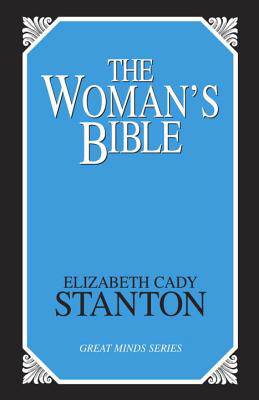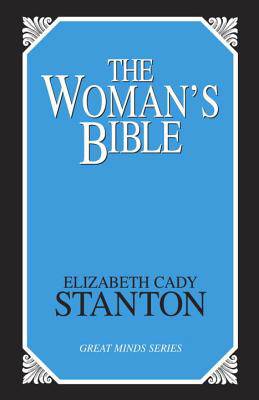
- Afhalen na 1 uur in een winkel met voorraad
- Gratis thuislevering in België vanaf € 30
- Ruim aanbod met 7 miljoen producten
- Afhalen na 1 uur in een winkel met voorraad
- Gratis thuislevering in België vanaf € 30
- Ruim aanbod met 7 miljoen producten
Zoeken
€ 29,45
+ 58 punten
Uitvoering
Omschrijving
American feminist leader and suffragist Elizabeth Cady Stanton was also an outspoken critic of the Bible because the scriptures often portray women as inferior and have been used by men to justify unequal treatment of women in society. The 1870 revision of the Authorized English Version of the Bible prepared by an all-male committee from the Church of England so greatly dissatisfied Stanton that in response she courageously decided to compile a commentary by prominent feminists on the many Bible passages that refer to women. The result was The Woman's Bible, a fascinating book that explores, among other things, the documentation that Jesus believed in equal rights for men and women; the ignorance, arrogance, and hypocrisy on the part of the church hierarchy; and the slaughter of women who were slaves, wives of drunkards, or were believed to be witches.The insight that Stanton and her fellow commentators provide into biblical writings and into the minds of women of her era is enlightening and serves as an inspiration to today's feminist movement.
Specificaties
Betrokkenen
- Auteur(s):
- Uitgeverij:
Inhoud
- Aantal bladzijden:
- 215
- Taal:
- Engels
- Reeks:
Eigenschappen
- Productcode (EAN):
- 9781573926966
- Verschijningsdatum:
- 1/05/1999
- Uitvoering:
- Paperback
- Formaat:
- Trade paperback (VS)
- Afmetingen:
- 137 mm x 214 mm
- Gewicht:
- 435 g

Alleen bij Standaard Boekhandel
+ 58 punten op je klantenkaart van Standaard Boekhandel
Beoordelingen
We publiceren alleen reviews die voldoen aan de voorwaarden voor reviews. Bekijk onze voorwaarden voor reviews.











